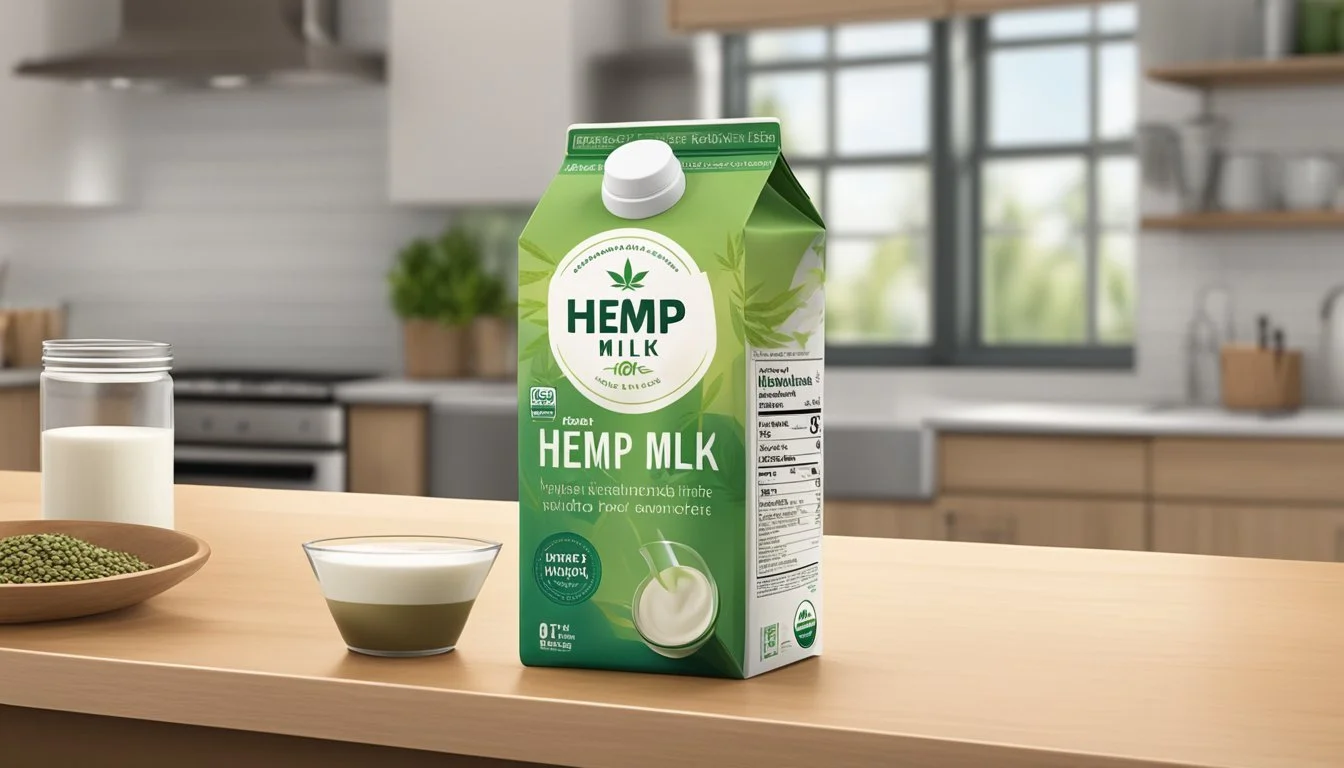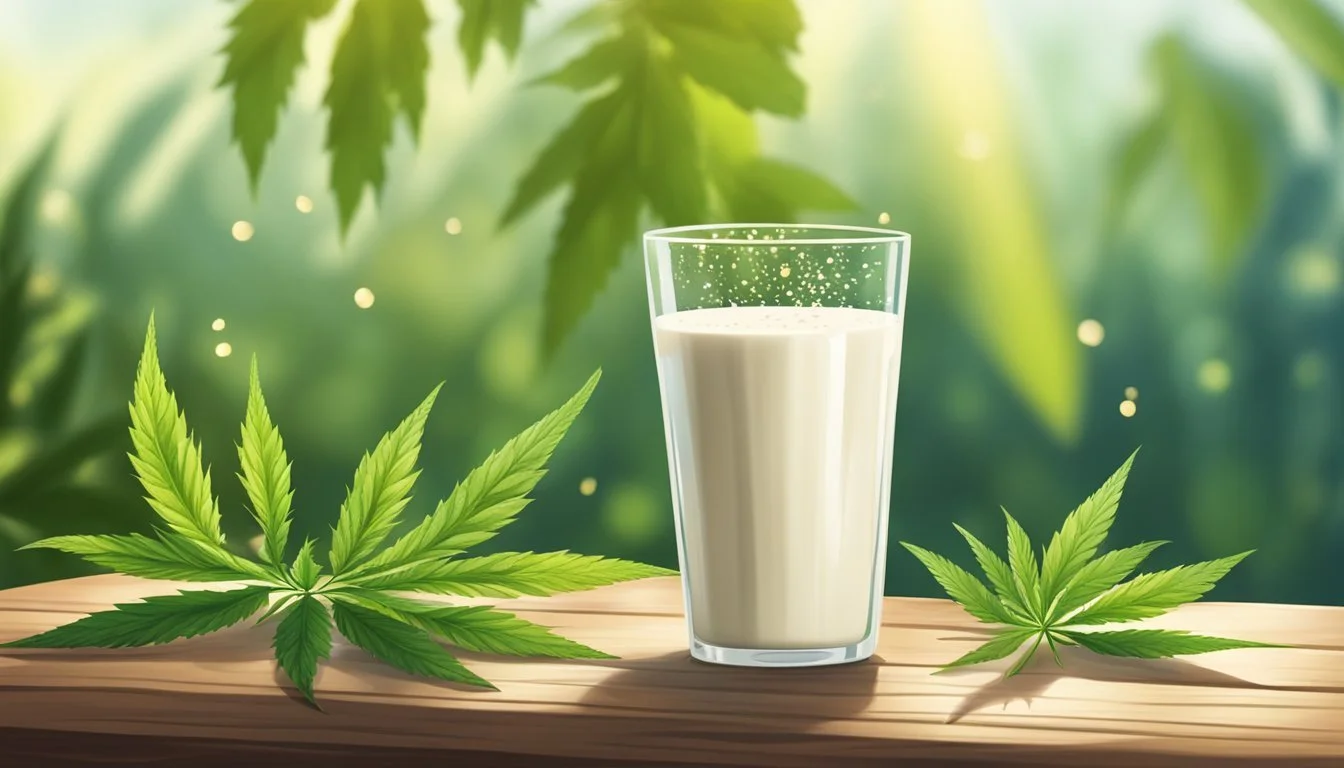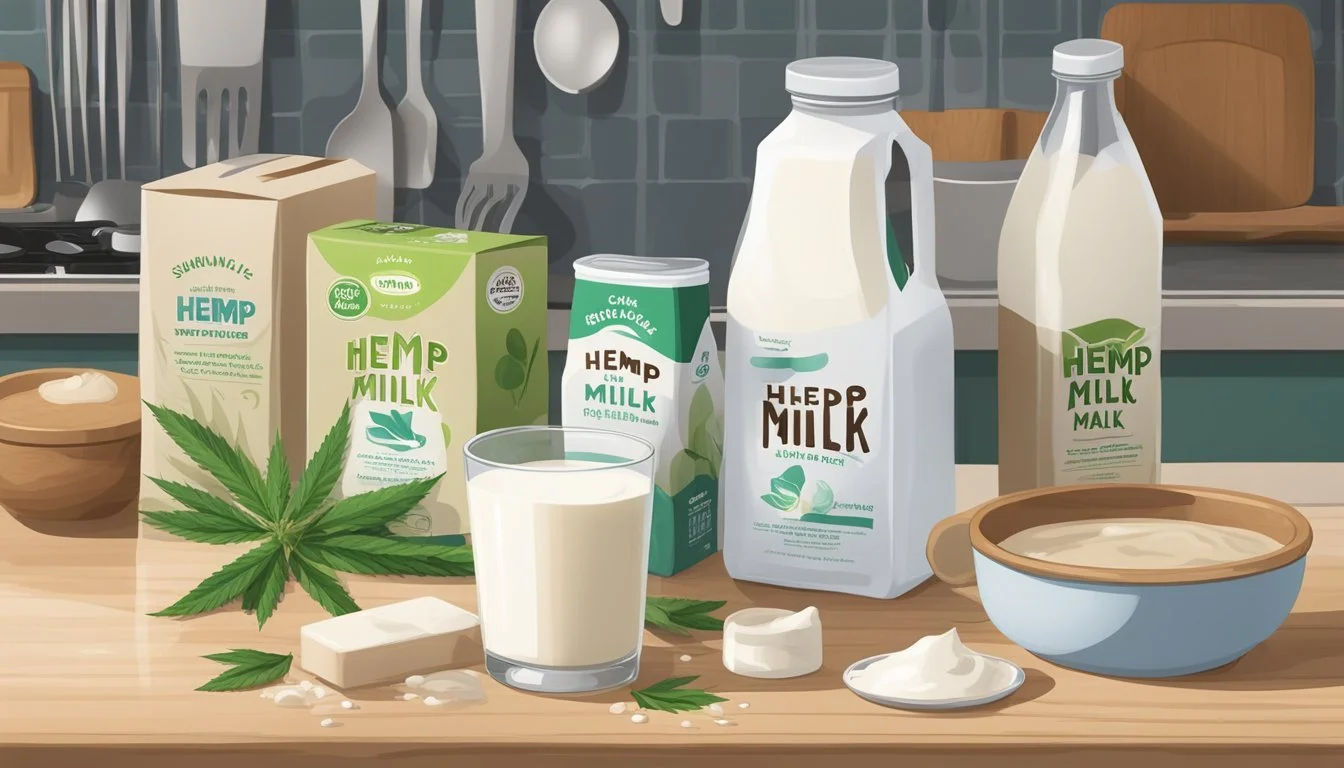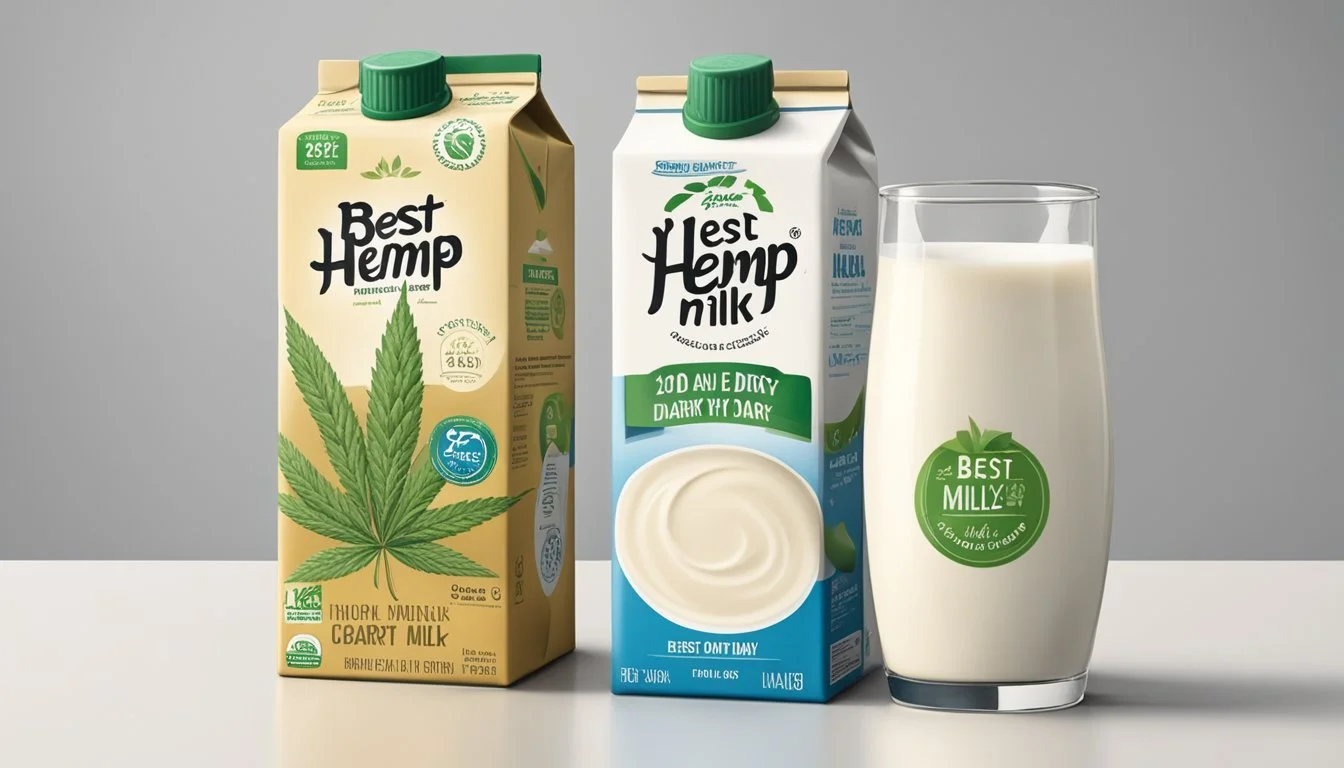Does Hemp Milk Spoil?
Understanding Shelf Life and Storage
Hemp milk, a popular plant-based alternative to dairy milk, offers a creamy texture and nutty flavor. Many health-conscious consumers are attracted to its rich nutritional profile, which includes essential amino acids, omega-3 and omega-6 fatty acids, and high-quality plant protein. Despite these benefits, many wonder whether hemp milk can spoil and how to tell when it's no longer safe to consume.
Yes, hemp milk can spoil, just like any other perishable food product. Understanding the signs of spoilage, such as changes in smell, taste, and texture, is crucial to ensure you're consuming a safe beverage. Proper storage is essential; always refrigerate hemp milk after opening and check expiration dates to maintain its freshness.
The shelf life of hemp milk varies depending on whether it's homemade or store-bought. Most commercial versions are pasteurized, extending their refrigerated life post-opening. However, homemade hemp milk typically lacks preservatives and pasteurization, which means it should be consumed within a few days. To maintain optimal freshness, always store hemp milk in a cool, dark place before opening and in the refrigerator once opened.
Understanding Hemp Milk
Hemp milk is a plant-based alternative made from hemp seeds, known for its creamy texture and rich nutritional profile. This section explores the origins and production of hemp milk and compares it with other popular plant-based milks.
Origins and Production
Hemp milk originates from the hemp plant, scientifically known as Cannabis sativa. Unlike its psychoactive counterpart, hemp is cultivated for its seeds and fibers rather than its resin. Hemp seeds are the primary ingredient in hemp milk.
To produce hemp milk, raw hemp seeds are blended with water. This process extracts the nutrients and creates a smooth, nutty-flavored beverage. Sometimes, sweeteners or flavorings are added to enhance taste. Hemp milk retains many of the beneficial properties of hemp seeds, including essential fatty acids and complete proteins.
Comparing Hemp Milk to Other Plant-Based Milks
Hemp milk is often compared to other plant-based milks such as almond milk and soy milk. One distinguishing feature is its complete protein profile; it contains all essential amino acids, making it unique among plant-based milks.
When compared to almond milk, hemp milk generally has a creamier texture due to its higher fat content. It also offers a balanced ratio of omega-3 and omega-6 fatty acids, beneficial for heart health. Unlike soy milk, hemp milk is free from common allergens like soy and nuts, making it a suitable choice for individuals with allergies.
In terms of nutritional content, hemp milk provides valuable nutrients that some other plant-based milks may lack, including substantial amounts of iron and magnesium. This makes it an attractive option for those seeking a nutritious, plant-based alternative to dairy milk.
Nutritional Profile
Hemp milk offers a rich array of nutrients that contribute to a balanced diet, including essential fatty acids, proteins, vitamins, and minerals. Its nutritional benefits make it a valuable alternative to traditional dairy milk.
Macronutrients in Hemp Milk
Hemp milk contains an array of macronutrients important for sustaining energy and health. One cup of unsweetened, unflavored hemp milk typically provides 60 calories. It includes about 3 grams of protein, making it a decent source of plant-based protein.
The milk has around 4.5 grams of fat, including both omega-3 and omega-6 fatty acids, which are essential for heart health. It stands out for having 0 grams of carbohydrates and fiber, making it suitable for low-carb diets. Being naturally free from cholesterol is another notable feature.
Vitamins and Minerals Content
In addition to macronutrients, hemp milk is packed with numerous vitamins and minerals. It provides essential vitamins such as vitamin A and vitamin D, which support eye health and immune function, respectively.
Calcium content in hemp milk supports bone health, alongside notable levels of iron, phosphorus, magnesium, and zinc. These minerals collectively contribute to a range of bodily functions, including oxygen transport, bone strength, and enzyme function.
Vitamin B12 is often added, enhancing its nutritional value, especially for those following a vegan diet where this vitamin might be lacking. The mineral-rich profile further solidifies hemp milk as a comprehensive, nutrient-dense choice for consumers.
Health Benefits
Hemp milk offers a range of health benefits, including promoting heart health, aiding digestion, and enhancing skin health. This plant-based milk is rich in essential fatty acids, fiber, and key amino acids.
Promoting Heart Health
Hemp milk contains high levels of omega-3 and omega-6 fatty acids, which are crucial for maintaining heart health. These polyunsaturated fats help reduce blood cholesterol levels, thereby lowering the risk of heart disease. The amino acid arginine, found in hemp milk, produces nitric oxide, which helps to relax blood vessels and improve blood flow, further contributing to cardiovascular health.
Studies suggest that omega-3 fatty acids can reduce triglyceride levels, decrease the risk of arrhythmias, and slightly lower blood pressure. Omega-6 fatty acids, while needed, should be balanced with omega-3 to avoid potential inflammatory effects. For a heart-healthy diet, hemp milk is a beneficial addition, providing essential nutrients without the cholesterol found in animal milk.
Digestive and Anti-Inflammatory Advantages
Hemp milk is rich in dietary fiber, supporting a healthy digestive system. Fiber aids in regular bowel movements and prevents constipation. This milk is also free from lactose, making it suitable for individuals with lactose intolerance. The presence of both soluble and insoluble fibers helps promote gut health and aids in the prevention of digestive disorders.
The anti-inflammatory omega-3 fatty acids in hemp milk can help reduce inflammation in the body. Chronic inflammation is linked to various diseases, including arthritis and inflammatory bowel disease. By incorporating these fatty acids into the diet, hemp milk may assist in managing and reducing inflammation, contributing to overall wellness.
Benefits for Skin
Hemp milk benefits include contributions to skin health due to its rich nutrient profile. The essential fatty acids, particularly omega-3 and omega-6, help maintain skin elasticity, hydration, and general appearance. These fatty acids strengthen the skin barrier, thus assisting in retaining moisture and protecting against environmental damage.
The vitamin E content in hemp milk acts as an antioxidant, helping to neutralize free radicals and prevent skin aging. The minerals found in hemp milk, such as zinc and magnesium, also support skin repair and regeneration. Including hemp milk in the diet can lead to healthier, more resilient skin.
Culinary Uses of Hemp Milk
Hemp milk's creamy texture and nutty flavor make it a versatile ingredient in a variety of culinary applications. Its usage spans beverages, cooking, and baking, offering an excellent plant-based substitute for dairy milk.
Hemp Milk in Beverages
Hemp milk is an ideal base for many beverages. Its creamy consistency enhances the texture of smoothies, lattes, and tea. It blends well with fruits and greens, creating rich and nutritious smoothies. Coffee lovers can use hemp milk to create a deliciously smooth hemp milk latte.
For breakfast, hemp milk pairs perfectly with cereal or granola, adding a nutty undertone. It's also suitable for making hot chocolate or an energizing matcha latte. The naturally mild sweetness and creamy texture make it a favorite in various drink recipes.
Cooking and Baking with Hemp Milk
In cooking, hemp milk can be used as a substitute for dairy milk in many savory dishes and baked goods. Its nutritional profile and creamy nature enhance recipes like soups, sauces, and casseroles. It works well in dishes like mac and cheese or creamy pasta sauces, providing a plant-based option without compromising on taste.
When it comes to baking, hemp milk is excellent for cakes, muffins, and pancakes. The nutty flavor can add depth to sweet treats like cookies and bread, making it a versatile addition to the baker's pantry. It can also be used in homemade dairy-free ice creams and puddings.
Hemp milk's adaptability in both cooking and baking illustrates its importance in plant-based culinary arts.
Making Your Own Hemp Milk
Creating your own hemp milk at home is a straightforward process that allows for customization in flavor and sweetness. It requires minimal ingredients and equipment, making it accessible to everyone.
Simple Hemp Milk Recipe
A basic hemp milk recipe needs only a few ingredients: hemp seeds, water, and a blender. To start, combine ½ cup of hemp seeds with 4 cups of water in a high-speed blender. Blend for about 1 minute until the mixture is smooth. No straining is usually necessary, but for a smoother texture, you can use a nut milk bag or fine mesh strainer. Store the milk in a sealed container in the refrigerator for up to five days.
Flavoring and Sweetening Options
Homemade hemp milk can be flavored and sweetened to taste. Popular choices include vanilla extract, maple syrup, and honey. To add flavor, mix 1 teaspoon of vanilla extract or a pinch of cinnamon into the blended hemp milk. Sweeten with 1-2 tablespoons of maple syrup or honey, adjusting to your preference. Dates can also be used as a natural sweetener. Soak 2-3 dates in hot water for about 15 minutes, then blend them with the hemp seeds and water.
Variations and Additives
There are several ways to customize hemp milk by adding thickeners and other additives. For a creamier texture, blend in a tablespoon of coconut butter or a small amount of soaked cashews. You can also add 1-2 tablespoons of chia seeds or flaxseeds to the mixture for added nutrition and thickness. For those looking to boost the flavor, try adding a dash of sea salt, or even a little cocoa powder for a chocolate version.
Online recipes often suggest experimenting with different ratios and ingredients to find the perfect blend that suits individual tastes.
Storage and Shelf Life
Hemp milk has specific storage requirements to maintain its freshness and safety. Understanding these methods will help ensure you get the most out of your hemp milk.
Proper Hemp Milk Storage
Unopened store-bought hemp milk is often shelf-stable and can be stored at room temperature for up to a year, thanks to added preservatives. Once opened, it must be refrigerated and is best consumed within 7 to 10 days.
For homemade hemp milk, refrigeration is crucial as it typically lacks preservatives. This type should be kept in a sealed container and consumed within a week. Freezing hemp milk is also an option to extend its shelf life. Use airtight containers or ice cube trays, leaving room for expansion, and label the date of freezing.
Identifying Spoilage
Spoiled hemp milk can be identified by several signs. Changes in texture such as clumping or separation (beyond natural settling) indicate spoilage. An off smell or unusual taste are clear indicators that the milk should not be consumed. Bloated packaging can also signal that the milk has gone bad.
It's important to regularly check labeling and dates to avoid consuming spoiled milk. Even with proper storage, always perform a smell and taste test before using hemp milk, especially if it's been stored for an extended period.
Consumer Considerations
Consumers should be mindful of brand choices, dietary restrictions, and potential environmental and ethical impacts when selecting hemp milk.
Choosing Hemp Milk Brands
Selecting the right brand of hemp milk can significantly impact nutritional value and taste. Store-bought hemp milk often comes fortified with vitamins and minerals, such as calcium and vitamin D. Reading the label is crucial to avoid additives like carrageenan, which some people prefer to avoid for health reasons.
Different brands may vary in sugar content and calories, making it essential to choose a product aligning with dietary needs. Consumers looking to reduce saturated fat or who prefer unsweetened versions will find options labeled accordingly.
Dietary and Allergy Information
Hemp milk is an excellent option for those with dairy or other allergies. It's a non-dairy, vegan, and dairy-free beverage, naturally free of common allergens like lactose and soy. Unlike other plant-based milks, hemp milk does not typically contain dangerous levels of THC, the psychoactive component found in marijuana.
In terms of nutrition, hemp milk is often fortified to increase its nutritional value. It’s also low in saturated fat and can come in low or zero-sugar variants, making it suitable for various dietary preferences.
Environmental and Ethical Impacts
From an environmental standpoint, hemp milk is considered sustainable. Hemp plants require minimal pesticides and have a high yield per acre, making them eco-friendly. Consumers considering ethical aspects will appreciate that hemp cultivation regenerates soil health.
Hemp milk's production has a lower carbon footprint compared to dairy milk, aligning with eco-conscious choices. Moreover, being a vegan product, it resonates with those who prioritize animal welfare. The absence of fertilizers and pesticides in its growth supports a reduction in environmental toxins.
By considering these aspects, consumers can make informed choices that align with their dietary needs, health concerns, and ethical beliefs.









